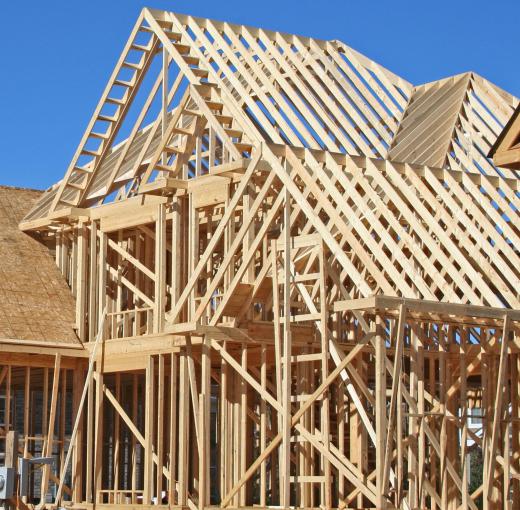A construction permit is a legal document that authorizes the holder to undertake a building project. The permit can be issued by the state, city, or local authority having jurisdiction. These permits may apply to new construction or remodeling work and home additions. Municipalities that require building permits often require these permits for both residential and commercial projects.
While the exact requirements vary by region, the majority of major building projects require the owner or builder to obtain a permit. For example, a contractor wishing to construct a school or office building will need a permit, as will a citizen looking to build a new home. Many cities also require permits for interior or exterior renovations, such as adding a bedroom or building a deck. Small fences and simple interior work may not require a building permit.

In addition to the main construction permit for each project, many cities also require contractors to obtain separate specialty permits. Tthe electrician and plumber may have to apply for electrical and plumbing permits, respectively. The same is true for heating and cooling fields, as well as sprinkler contractors.
In order to obtain a construction permit, the homeowner or contractor must visit the local permit office. This office will provide an application to fill out, and will often require a permit fee to be paid. On larger projects, the office may ask for building plans or sketches outlining the project. Some projects may require review by planning or zoning commissions before a permit will be issued. After the building and all inspections are complete, this office issues a certificate of occupancy stating that the building is safe to occupy.

The construction permit process offers a number of advantages to both the building occupants and society as a whole. Permitting ensures that safety and building codes will be followed, and sets the project on a path towards required inspections. Permits also ensure that zoning codes are followed so that neighborhood and community goals can be maintained.

Failure to obtain a building permit prior to construction is illegal in many areas. Those who build without a construction permit may be subject to heavy fines or even criminal penalties. In some instances, the homeowner or builder may be required to tear down completed work and start over once a permit has been issued. It can be difficult to impossible to sell a building or home that has not gone through the permitting process and received a certificate of occupancy.
